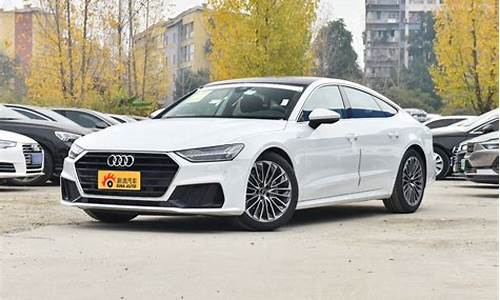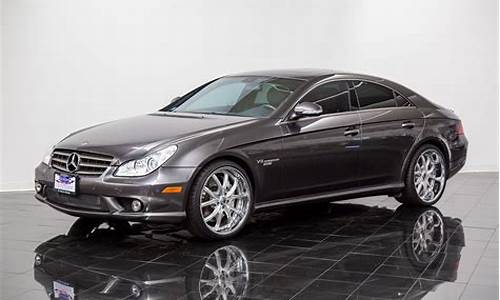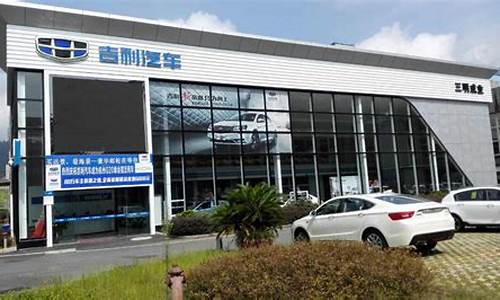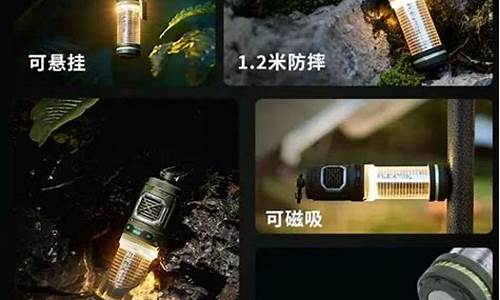Giulietta e Romeo_1
大家好,我很乐意和大家探讨Giulietta e Romeo的相关问题。这个问题集合涵盖了Giulietta e Romeo的各个方面,我会尽力回答您的疑问,并为您带来一些有价值的信息。
1.意大利不只有朱丽叶 | 维罗纳篇
2.alfa romeo是什么车
3.《罗密欧与茱丽叶》舞台剧台词
4.alfaromeo是什么车标志
5.航空术语中juliet和romeo是什么
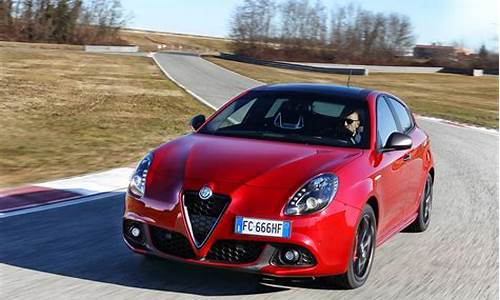
意大利不只有朱丽叶 | 维罗纳篇
Sophie 是纽约一家杂志的调查员,梦想成为正式撰稿人;她的未婚夫 Victor 热爱美食,为自己即将开设的餐厅而紧锣密鼓地筹备着。婚期将近,两人决定前往 意大利 蜜月旅行。
浪漫之都 维罗纳 是两人的首个落脚点,而处于小径中的 朱丽叶故居 ,让Sophie在机缘巧合下见证了一段 旷世之恋 。
意大利 位处 欧洲南部 ,由靴子型的 亚平宁半岛(Apennine Peninsula) 、地中海中的 西西里岛(Sicily) 与撒丁岛(Sardinia)及其他零散岛屿所组成,类型丰富的国土使得其境内的各处风光 不尽相同 ——
北部 的阿尔卑斯山,终年积雪,千里冰封;
南部 的西西里大岛,阳光充足,温暖宜人。
亚平宁半岛 也被称作“意大利半岛”,但其实岛上还包围着两个袖珍小国—— 圣马力诺(San Marino) 与 梵蒂冈(Vatican) 。
《给朱丽叶的信》 在意大利的取景地均分布在该半岛上,主要则集中在阿迪杰河畔的 维罗纳(Verona) 与中世纪古城 锡耶纳(Siena) 。
著名戏剧 《罗密欧与朱丽叶( Romeo and Juliet )》 使得维罗纳的名字风靡世界,作为 “爱之城” ,每年有不计其数对爱情心怀向往的游客来到这里,寻访罗密欧与朱丽叶的印记。
Sophie 与 Victor 也是他们当中的一员。
维罗纳历史悠久,在 公元前一世纪 即是 古罗马帝国 的重要城市,它北靠 阿尔卑斯山(Alps) 、东临水城 威尼斯(Venice) ,绵延的 阿迪杰河(Adige River) 从城中流过。同时,维罗纳也是意大利和欧洲铁路、公路相连的交通枢纽,称得上意大利的门户。
“Verona” 一词,在拉丁语中的意思是 “极高雅的城市” 。
从空中望去,旖旎风光尽收眼底。
百草广场(Piazza delle Erbe) 始于罗马帝国时期,在当时是市民集会的场所。如今的街道两旁商铺林立,多是一些经营花卉及蔬果的小店。
广场内部及周围的建筑物,均为 中世纪 至 文艺复兴 时期所建,其中名为 维罗纳圣母(Madonna Verona) 的喷泉雕塑是里面最古老的一个——它建于公元380年。
布拉广场(Piazza Bra) 是维罗纳 最大的广场 ,也是传统的市集及商业区。
它的周围伫立着诸多著名建筑,如——
呈新古典主义风格,作为维罗纳市政厅的 巴尔比埃里宫(Palazzo Barbieri) 。
始建于1610年,几经波折,在两个多世纪后才得以完工的 大瓜尔迪亚宫(Palazzo della Gran Guardia) 。
但 最为著名 的,是建于公元一世纪的 维罗纳圆形竞技场(Arena di Verona) ,它的历史比 罗马竞技场 更为悠久。
古罗马时期的罗马人一共建造了 六十余座 竞技场,后世保存下来的只有 十分之一 ,维罗纳圆形竞技场是其中 保存最为完好 的一个。
漫步在广场间的 Sophie身后 ,便是竞技场的身影。
与所有的竞技场一样,起初建造的目的是为了 斗兽表演 。如今的维罗纳圆形竞技场,以举办 大型歌剧 表演而闻名于世,其场内可一次性容纳 2万 人,每年吸引了超过 50万 游客来到此地。
皮草街(Via Pellicciai) 就在百草广场的旁边,从广场延伸出的它是一条步行街,两旁开设着诸多餐厅及酒吧,方便旅途劳顿的人在此临时歇脚。
画面中的Sophie左侧、也就是皮草街之东的拱形门框属于 商人之家(Domus Mercatorum) ,它早在1210年就被修建完成。在中世纪,这里是当地经商之人的聚集地,如今是 维罗纳大众银行(Banca Popolare di Verona) 的办公场所。
圣马可步梯(Scalette San Marco) 也在百草广场与皮草街的附近,它蜿蜒曲折地穿行于低楼巷宇之间 ,走在里面颇有 “曲径通幽” 的意味。
不出意外, Sophie与Vocitor下榻之处是虚构 的——剧组只是在圣马可步梯选取了一扇门作为酒店的门口。
《罗密欧与朱丽叶》 的闻名程度,使得不少人把它误认为 莎士比亚“四大悲剧” 之一。但,虽未名列其中,它却仍与里面的 《哈姆雷特(Hamlet)》 比肩,共同成为 莎翁上演率最高的戏剧 。
除了频频上演的戏剧外,同名的影视作品也在不断拍摄。新晋奥斯卡影帝 小李子 还曾在相貌如日中天之时扮演过罗密欧。
而 最为经典的版本 ,是由意大利导演 佛朗哥·泽菲雷里(Franco Zeffirelli) 所执导的68年版。
片中,时年均未满十八岁的男女主角,将年幼的罗密欧与朱丽叶两人间的浪漫情愫还原到了极致。在今年的 上海国际**节 期间,该版本还被列入到莎翁作品展映单元。
夜色下,朱丽叶在阳台上 对空诉说 对罗密欧的爱恋,却被藏在旁边的他句句听在心里。在暴露了自己的藏身之所后,罗密欧便与朱丽叶隔着阳台在黎明降临前 互诉衷肠 。
如此浪漫又传奇的故事,使得 朱丽叶故居(Casa di Giulietta) 成为维罗纳的热门景点。与Victor分开活动的Sophie也选择了这里。
一年四季,这里都游人如织。 热爱戏剧 的游客,还会站在传说中的阳台上 即兴表演 一段;与《给朱丽叶的信》中一样,爱情的信徒们则将心中所想写于纸面,贴在墙上。
不同的是 ——
**中有着伤心过往的女人,将信件或贴在两层建筑的外墙面、或塞进石砖的缝隙内。 实际上 ,故居本身只在 院门的长廊 及 建筑以外的低矮墙面 上允许游客粘贴自己的片言碎语。片中,Sophie碰掉墙体上的石砖并在里面发现已被 尘封五十年 的信件,这个墙面为剧组 临时搭建 ,毕竟, “破坏”真实建筑的代价实在太过巨大 。
从墙缝中找到的信件,其主人叫 Claire 。Sophie写了回信并寄了出去。此时的Claire已然 满头白发 ,收到回信的她在孙子Charlie的陪同下 重回维罗纳 。
她站在庭中,回忆往昔。身旁的 朱丽叶铜像 ,几十年如一日地伫立在此。
与影片中一样,有点恶趣味但却被许多游客信奉着的是, 抚摸铜像的右胸会给自己的爱情及婚姻带来好运 。铜像的右胸也因为常年受到抚摸而变得锃亮,近些年更是有了磨损的情况,亟待修复。
黄昏时的游客渐稀,Sophie坐在院中给朱丽叶写信,一位女士突然造访并收走了墙上的信件。Sophie赶忙跟随对方走了出去,想知道信件被 送往何处 。最终,发现来到了挂有 “给朱丽叶的信餐厅( Trattoria Lettere a Giuilietta )” 标识的门前,看到收走信件的人与其他几位年纪稍长的女士碰头并走进了屋内。
原来,这些人是将游客写给朱丽叶的信件收集在一起,分门别类后再 以朱丽叶秘书的名义写一封回信 并 寄给对方 。
就这样,Sophie结识了 “朱丽叶的秘书们” 并加入其中。
以“给朱丽叶的信”为名称的 餐厅实际上并不存在 ,影片拍摄期间,这栋位于阿迪杰河畔的房产恰巧空闲,剧组便在这里临时搭建了一间虚构的餐厅。如今,原址上开着 维罗纳极简超市(Punto Simply Verona) 。
但是——
朱丽叶的秘书们确有其人,他们是一群来自 “朱丽叶俱乐部(Club di Giulietta)” 的志愿者。
埃托雷·索利马尼(Ettore Solimani) 这个名字并不为人所知,但他却是俱乐部里的 第一个志愿者 。他本是朱丽叶墓地的看墓人,自 1930年 起,出于对朱丽叶的热爱及对失恋之人的体谅,他会在夜间回复部分游客留下的纸条。
进入 90年代 ,索利马尼已退休多年。维罗纳当地的一些热心人决定将回复游客信件的行为 官方化 ,并 成立了“朱丽叶俱乐部” ,为此,当地政府决定出资提供信纸及邮票,志愿者本身则不收取任何报酬。
久而久之,俱乐部里开始有了 48岁的女舞蹈演员 、 55岁的男摄影师 、 21岁的自由职业者 等等,慢慢地组成了有 二十多人 的队伍。同时,也设立了专门的网站: 茱丽叶俱乐部官网 (点击打开)——
贴心的是,俱乐部官网首页还有一个叫做 “Write to Juliet(给朱丽叶写信)” 的特别通道,使世界各地的人都可以 通过互联网远程给朱丽叶写信 。
当 Claire 也如其他游客般,收到由朱丽叶的秘书所执笔的回信时,距她给朱丽叶写信的那天已经 隔了五十年 。
这封迟来许久的回信,除了把年过半百的Claire 带回维罗纳 外,还发生了什么呢?罗密欧与朱丽叶的故事,又 真的发生在维罗纳 吗?
请看下一期: 《意大利不只有朱丽叶 | 锡耶纳篇》
* 除版权保留外,均来源于网络。
alfa romeo是什么车
1.The Forcefulness of Love
Romeo and Juliet is the most famous love story in the English literary tradition. Love is naturally the play’s dominant and most important theme. The play focuses on romantic love, specifically the intense passion that springs up at first sight between Romeo and Juliet. In Romeo and Juliet, love is a violent, ecstatic, overpowering force that supersedes all other values, loyalties, and emotions. In the course of the play, the young lovers are driven to defy their entire social world: families (“Deny thy father and refuse thy name,” Juliet asks, “Or if thou wilt not, be but sworn my love, / And I’ll no longer be a Capulet”); friends (Romeo abandons Mercutio and Benvolio after the feast in order to go to Juliet’s garden); and ruler (Romeo returns to Verona for Juliet’s sake after being exiled by the Prince on pain of death in II.i.76–78). Love is the overriding theme of the play, but a reader should always remember that Shakespeare is uninterested in portraying a prettied-up, dainty version of the emotion, the kind that bad poets write about, and whose bad poetry Romeo reads while pining for Rosaline. Love in Romeo and Juliet is a brutal, powerful emotion that captures individuals and catapults them against their world, and, at times, against themselves.
The powerful nature of love can be seen in the way it is described, or, more accurately, the way descriptions of it so consistently fail to capture its entirety. At times love is described in the terms of religion, as in the fourteen lines when Romeo and Juliet first meet. At others it is described as a sort of magic: “Alike bewitchèd by the charm of looks” (II.Prologue.6). Juliet, perhaps, most perfectly describes her love for Romeo by refusing to describe it: “But my true love is grown to such excess / I cannot sum up some of half my wealth” (III.i.33–34). Love, in other words, resists any single metaphor because it is too powerful to be so easily contained or understood.
Romeo and Juliet does not make a specific moral statement about the relationships between love and society, religion, and family; rather, it portrays the chaos and passion of being in love, combining images of love, violence, death, religion, and family in an impressionistic rush leading to the play’s tragic conclusion.
2.Love as a Cause of Violence
The themes of death and violence permeate Romeo and Juliet, and they are always connected to passion, whether that passion is love or hate. The connection between hate, violence, and death seems obvious. But the connection between love and violence requires further investigation.
Love, in Romeo and Juliet, is a grand passion, and as such it is blinding; it can overwhelm a person as powerfully and completely as hate can. The passionate love between Romeo and Juliet is linked from the moment of its inception with death: Tybalt notices that Romeo has crashed the feast and determines to kill him just as Romeo catches sight of Juliet and falls instantly in love with her. From that point on, love seems to push the lovers closer to love and violence, not farther from it. Romeo and Juliet are plagued with thoughts of suicide, and a willingness to experience it: in Act III, scene iii, Romeo brandishes a knife in Friar Lawrence’s cell and threatens to kill himself after he has been banished from Verona and his love. Juliet also pulls a knife in order to take her own life in Friar Lawrence’s presence just three scenes later. After Capulet decides that Juliet will marry Paris, Juliet says, “If all else fail, myself have power to die” (III.v.242). Finally, each imagines that the other looks dead the morning after their first, and only, sexual experience (“Methinks I see thee,” Juliet says, “. . . as one dead in the bottom of a tomb” (III.v.242; III.v.55–56). This theme continues until its inevitable conclusion: double suicide. This tragic choice is the highest, most potent expression of love that Romeo and Juliet can make. It is only through death that they can preserve their love, and their love is so profound that they are willing to end their lives in its defense. In the play, love emerges as an amoral thing, leading as much to destruction as to happiness. But in its extreme passion, the love that Romeo and Juliet experience also appears so exquisitely beautiful that few would want, or be able, to resist its power.
3.The Individual Versus Society
Much of Romeo and Juliet involves the lovers’ struggles against public and social institutions that either explicitly or implicitly oppose the existence of their love. Such structures range from the concrete to the abstract: families and the placement of familial power in the father; law and the desire for public order; religion; and the social importance placed on masculine honor. These institutions often come into conflict with each other. The importance of honor, for example, time and again results in brawls that disturb the public peace.
Though they do not always work in concert, each of these societal institutions in some way present obstacles for Romeo and Juliet. The enmity between their families, coupled with the emphasis placed on loyalty and honor to kin, combine to create a profound conflict for Romeo and Juliet, who must rebel against their heritages. Further, the patriarchal power structure inherent in Renaissance families, wherein the father controls the action of all other family members, particularly women, places Juliet in an extremely vulnerable position. Her heart, in her family’s mind, is not hers to give. The law and the emphasis on social civility demands terms of conduct with which the blind passion of love cannot comply. Religion similarly demands priorities that Romeo and Juliet cannot abide by because of the intensity of their love. Though in most situations the lovers uphold the traditions of Christianity (they wait to marry before consummating their love), their love is so powerful that they begin to think of each other in blasphemous terms. For example, Juliet calls Romeo “the god of my idolatry,” elevating Romeo to level of God (II.i.156). The couple’s final act of suicide is likewise un-Christian. The maintenance of masculine honor forces Romeo to commit actions he would prefer to avoid. But the social emphasis placed on masculine honor is so profound that Romeo cannot simply ignore them.
It is possible to see Romeo and Juliet as a battle between the responsibilities and actions demanded by social institutions and those demanded by the private desires of the individual. Romeo and Juliet’s appreciation of night, with its darkness and privacy, and their renunciation of their names, with its attendant loss of obligation, make sense in the context of individuals who wish to escape the public world. But the lovers cannot stop the night from becoming day. And Romeo cannot cease being a Montague simply because he wants to; the rest of the world will not let him. The lovers’ suicides can be understood as the ultimate night, the ultimate privacy.
4.The Inevitability of Fate
In its first address to the audience, the Chorus states that Romeo and Juliet are “star-crossed”—that is to say that fate (a power often vested in the movements of the stars) controls them (Prologue.6). This sense of fate permeates the play, and not just for the audience. The characters also are quite aware of it: Romeo and Juliet constantly see omens. When Romeo believes that Juliet is dead, he cries out, “Then I defy you, stars,” completing the idea that the love between Romeo and Juliet is in opposition to the decrees of destiny (V.i.24). Of course, Romeo’s defiance itself plays into the hands of fate, and his determination to spend eternity with Juliet results in their deaths. The mechanism of fate works in all of the events surrounding the lovers: the feud between their families (it is worth noting that this hatred is never explained; rather, the reader must accept it as an undeniable aspect of the world of the play); the horrible series of accidents that ruin Friar Lawrence’s seemingly well-intentioned plans at the end of the play; and the tragic timing of Romeo’s suicide and Juliet’s awakening. These events are not mere coincidences, but rather manifestations of fate that help bring about the unavoidable outcome of the young lovers’ deaths.
The concept of fate described above is the most commonly accepted interpretation. There are other possible readings of fate in the play: as a force determined by the powerful social institutions that influence Romeo and Juliet’s choices, as well as fate as a force that emerges from Romeo and Juliet’s very personalities.
《罗密欧与茱丽叶》舞台剧台词
阿尔法·罗密欧(Alfa Romeo)是意大利著名的轿车和跑车制造商,创建于1910年,总部设在米兰,创始人尼古拉·罗密欧。阿尔法·罗密欧公司原名ALFA(Anonima Lombarda Fabbrica Automobili,伦巴第汽车制造厂),其前身最早可追溯至1906年由AlexandreDarracq创立于那不勒斯后迁至米兰的一个汽车公司。公司一开始就以专门生产运动车和赛车而闻名,这些车由意大利著名设计师设计,拥有浓烈的意大利风采、优雅的造型和超群的性能,在世界车坛上一直享有很高的声誉。
1986年,公司被菲亚特集团(FIAT)收购。2017年4月,阿尔法·罗密欧正式进入中国市场。
阿尔法·罗密欧(Alfa Romeo)是一家意大利汽车制造商,A.L.F.A全称为Anonima Lombarda Fabbrica di Automobili,建于1910年。Alfa公司是在废墟中建立起来的,1910年创厂的alfa汽车,以其强烈的运动气息以及独特外型,在车坛上一直有着其与众不同的定位。
从创立开始,alfa的造车目标就是朝生产高性能跑车以及跑车化轿车而努力,而在其创厂的发展史上,alfa旗下的车款的确也不辱使命,从20年代参加Mugello大赛、世界杯GP、30年代第一部单座GP赛车P3树立了当时的赛车典型、50年代火红席卷世界的158/159赛车。
现虽为FIAT的子公司,但仍保留它的商标。Alfa在赛车运动上的成绩十分优异;而在轿车领域,Alfa旗下轿车强烈的跑车风格也是毋庸置疑,尤其这些年来,Alfa淡出各项赛事,但是却更专注于赛车制造技术工艺运用到轿车的设计生产上面。
alfaromeo是什么车标志
Benvolio: Why, Romeo, art thou mad?
Romeo: Not mad, but bound more than a mad man is. Shut up in prison, kept without my food, whipped and tormented.
本沃利奥:为什么,罗密欧,你这样疯狂?
罗密欧:不是疯狂,但比一个疯子跃得更远。把握关进监狱,夺走我的食物,抽打我,折磨我。
Romeo: O, wilt thou leave me so unsatisfied?
Juliet: What satisfaction canst thou have tonight?
Romeo: The exchange of thy love's faithful vow for mine.
Juliet: I gave thee mine before thou didst request it!
罗密欧:哦,你让我这么不舒服吗?
朱丽叶:你今夜想要什么安慰?
罗密欧:作为交换,你对我爱的誓言。
朱丽叶:你一旦要求,我就给!
Juliet: O, swear not by the moon, the inconstant moon, who monthly changes in her circled orb, lest that thy love prove likewise variable.
Romeo: What shall I swear by?
Juliet: Do not swear at all. Or, if thou wilt, swear by the gracious self which is the god of my idolatry, and I'll believe thee.
朱丽叶:不要向月亮发誓,以免你的爱也像那变化无常的月亮,在环绕的天穹之上,每月都在变幻。
罗密欧:那我该向什么发誓?
朱丽叶:不要发誓。或者,如果你愿意,向你高贵的心灵发誓吧,那里有我们崇拜的上帝,我会相信你。
Juliet: O Romeo, Romeo, wherefore art thou Romeo? Deny thy father and refuse thy name, or if thou wilt not, be but sworn my love, and I'll no longer be a Capulet.
Romeo: Shall I hear more, or shall I speak at this?
Juliet: 'Tis but thy name that is my enemy, thou art thyself though not a Montague. What is Montague? It is nor hand, nor foot, nor arm, nor face, nor any other part belonging to a man. Oh, what's in a name? That which we call a rose by any other word would smell as sweet; so Romeo would, were he not Romeo called, retain that dear perfection to which he owes without that title. Romeo, doff thy name! And for thy name, which is no part of thee, take all myself.
朱丽叶:哦,罗密欧,罗密欧,为什么你是美妙的罗密欧?放弃你的父亲和你的姓氏,或者,你不愿意,就向我的爱发誓,那我将不再属于凯普莱特家族。
罗密欧:我还要听到更多这样的话吗,或者,我对着这个说?
朱丽叶:除了你的姓氏,这是我的敌人,尽管你的美妙不是来自蒙塔奇。什么是蒙塔奇?那不是手,不是脚,不是脸,不是一个男人的任何一部分。哦,在姓氏中有什么。我们不管用什么名字称呼玫瑰花它都照样芬芳,那么,罗密欧也是,他不是因为罗密欧这个名字保有他珍贵的美好。罗密欧,放弃你的名字,因为你的名字不是你的任何一部人,不占有你。
Romeo: The world is not thy friend, nor the world's law.
罗密欧:世界不是你的朋友,世界的法律也不是。-------------------------->>>这是不要下载的精彩对白 我也很喜欢莱昂纳多的这部**。这部**里感觉他超帅= =、--------------------------**台词是要下载的恩 不懂你会不会介意。/search/Sub:%E7%BD%97%E5%AF%86%E6%AC%A7%E4%B8%8E%E8%8C%B1%E4%B8%BD%E5%8F%B6%E5%90%8E%E7%8E%B0%E4%BB%A3%E6%BF%80%E6%83%85%E7%AF%87/?x=22&y=11&
可以分别下载中文英文的台词。希望你满意。
航空术语中juliet和romeo是什么
alfaromeo标志是意大利汽车品牌阿尔法·罗密欧。阿尔法·罗密欧(AlfaRomeo)创建于1910年,总部设在米兰,是著名的轿车和跑车制造商,致力于生产高性能跑车以及跑车化轿车。阿尔法罗密欧是一个来自意大利的汽车制造厂商。阿尔法罗密欧进入国内销售的车型有两款,一款是朱丽叶,这是一款运动型b级轿车,另一款是stlvio,这是一款中型suv。
Alfa公司是在废墟中建立起来的,1910年创厂的alfa汽车,以其强烈的运动气息以及独特外型,在车坛上一直有着其与众不同的定位。
汽车品牌
就像这个车标一样,阿尔法·罗密欧的风格如此特别,在现代的风格中带有历史的回归,暗示着始终的创新与技术完美,有着诗意的名字,就像一个梦中的精灵。公司选择的标志,寓意希望能承继米兰的光荣历史,继续发扬光大。
运动的本性已经流淌在每一辆阿尔法·罗密欧身上,成为阿尔法·罗密欧最不可分割的一部分,像DNA一样。新的8C、MiTo、Giulietta、GT、159、brera和Spider等,都是数一数二的精品。
标准字母发音,为区别相似字母发音如BCDE,ICAO规定的标准读音,用于无线电通话。其实A到Z的所有字母都有对应的代号,A-alfa ,B-beta, C-charlie, D-delta, E-echo, F-foxtrot, G-gulf, H-hotel, I-India, J-Juliette, K-kilo, L-lima, M-mike, N-november, O-oscar, P-papa, Q-qubec, R-romeo, S-sierra, T-tango, U-uniform, V-victor, W-whiskey, X-X-ray, Z-zulu。本人飞行员,希望对你有用
今天关于“Giulietta e Romeo”的讲解就到这里了。希望大家能够更深入地了解这个主题,并从我的回答中找到需要的信息。如果您有任何问题或需要进一步的信息,请随时告诉我。
声明:本站所有文章资源内容,如无特殊说明或标注,均为采集网络资源。如若本站内容侵犯了原著者的合法权益,可联系本站删除。



